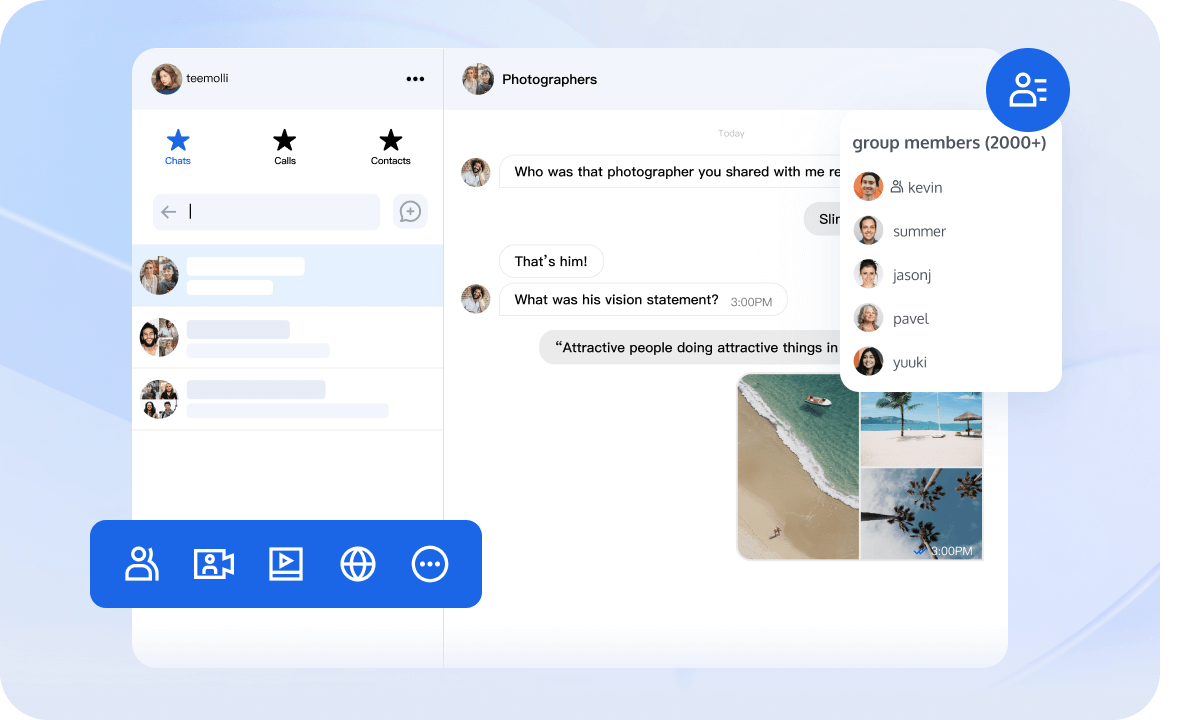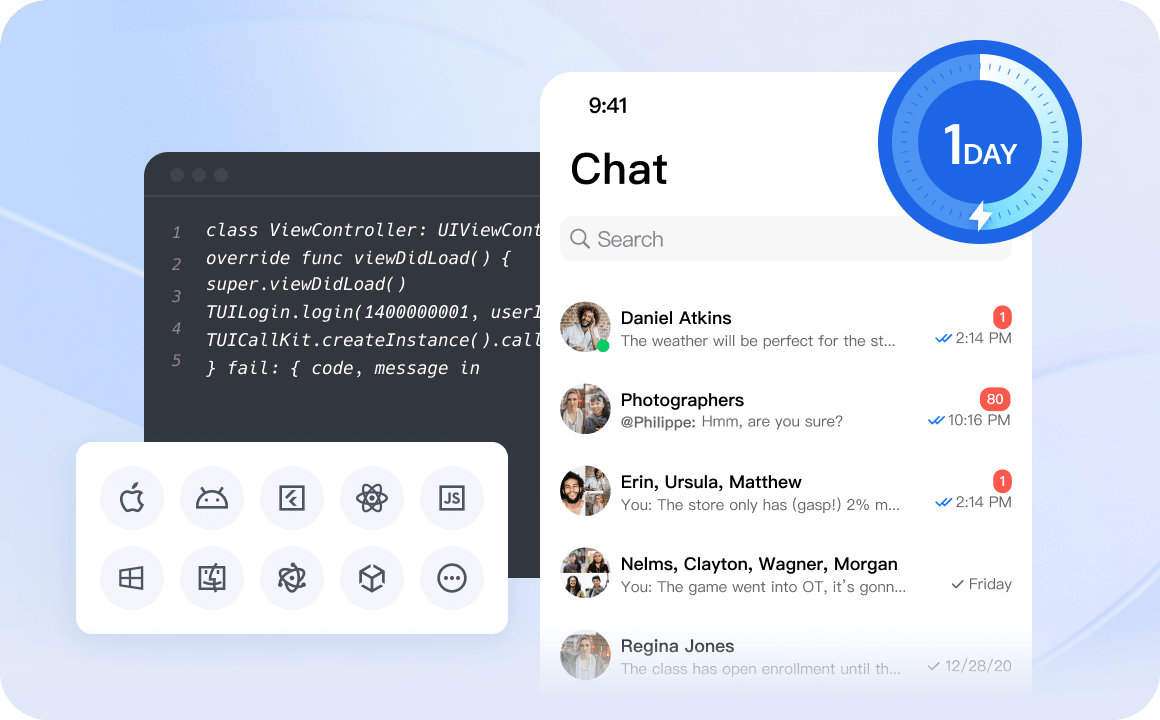Official JavaScript SDK for Tencent Cloud Chat
About Tencent Cloud Chat
Tencent Cloud Chat provides globally interconnected chat APIs, multi-platform SDKs, and UIKit components to help you quickly bring messaging capabilities such as one-to-one chat, group chat, chat rooms, and system notifications to your applications and websites.
Benefits
Higher Engagement with Our Feature-rich Chat

Manage Groups and Conversations at Ease

Build Your Own Chat App in just One Day

👉🏻 Free Demo
📄 Documentation
Global Compliance Certifications
Core Capabilities
- 1 Billion+ Monthly active users
- 550 Billion+ Daily peak messages
- 100,000+ Customers worldwid
- 99.99% Message success rate
Use Cases
Social
Build real-time community interactions in your app using a simple chat API.
✓Various message types ✓Announcement ✓Group chat

Live
Welcome a large audience to your immersive live show using a simple chat API.
✓Unlimited participants ✓Interactive live streaming ✓Online chat

Metaverse
Bridge the limitless virtual and physical worlds using simple chat SDKs.
✓Chat in metaverse ✓User profile and management ✓Immersive interactions

Gaming
Intensify gaming with real-time chat engagement using a simple chat API.
✓Chat in game ✓Global message access ✓User profile and management

Education
Create interactive virtual classrooms with real-time chat experiences using simple chat SDK and API.
✓Class start notifications ✓Student management ✓Class messages

On-demand Service
Resolve order issues with in-app conversations quickly, with simple SDK and API.
✓Customer service support ✓Order cancellations minimization ✓Social features

Installation
npm install @tencentcloud/chat --save
npm install tim-upload-plugin --save
Getting started
import TencentCloudChat from '@tencentcloud/chat';
import TIMUploadPlugin from 'tim-upload-plugin';
let chat = TencentCloudChat.create({
SDKAppID: 0
});
chat.setLogLevel(0);
chat.registerPlugin({'tim-upload-plugin': TIMUploadPlugin});
Sending your first message
1. Generate UserSig
UserSig is a password used to log in to Tencent Cloud Chat. It is the ciphertext obtained after data such as UserID is encrypted. This document describes how to generate a UserSig.
2. Listen to the SDK_READY event
let onSdkReady = function(event) {
};
chat.on(TencentCloudChat.EVENT.SDK_READY, onSdkReady);
let onMessageReceived = function(event) {
};
chat.on(TencentCloudChat.EVENT.MESSAGE_RECEIVED, onMessageReceived);
3. Login in to the Chat SDK
let promise = chat.login({userID: 'your userID', userSig: 'your userSig'});
promise.then(function(imResponse) {
console.log(imResponse.data);
if (imResponse.data.repeatLogin === true) {
console.log(imResponse.data.errorInfo);
}
}).catch(function(imError) {
console.warn('login error:', imError);
});
After successful login, to call APIs that require authentication, such as sendMessage, you must wait until the SDK enters the ready state (you can obtain the status of the SDK by listening to the TencentCloudChat.EVENT.SDK_READY event.
3. Create a message instance
let message = chat.createTextMessage({
to: 'user1',
conversationType: TencentCloudChat.TYPES.CONV_C2C,
payload: {
text: 'Hello Tencent!'
},
});
4. Send the message instance
let promise = chat.sendMessage(message);
promise.then(function(imResponse) {
console.log(imResponse);
}).catch(function(imError) {
console.warn('sendMessage error:', imError);
});
Contact Us
Join a Tencent Cloud Chat developer group for Reliable technical support & Product details & Constant exchange of ideas.
- Telegram group (EN): join
- WhatsApp group (EN): join
- Telegram group (ZH): join
- WhatsApp group (ZH): join
Supported Browsers
| Chrome | 16 or higher |
| Edge | 13 or higher |
| Firefox | 11 or higher |
| Safari | 7 or higher |
| Internet Explorer | 10 or higher |
| Opera | 12.1 or higher |
| iOS Safari | 7 or higher |
| Android Browswer | 4.4 (Kitkat) or higher |






















